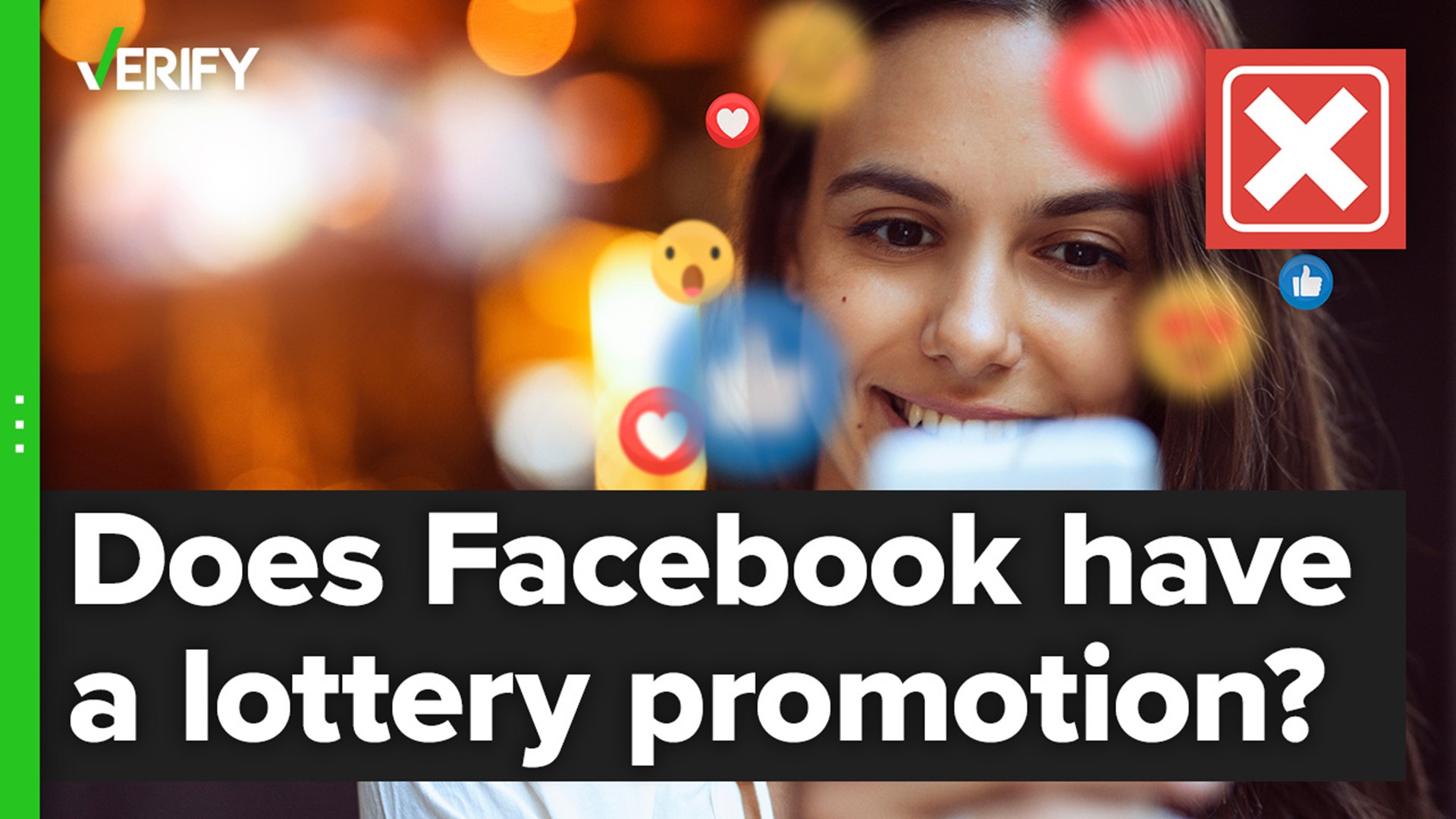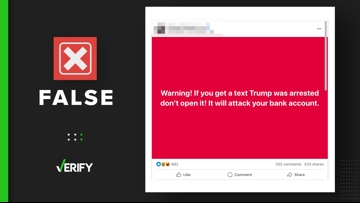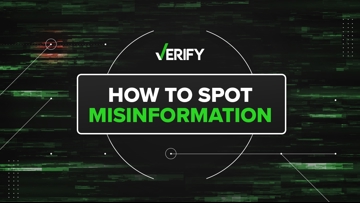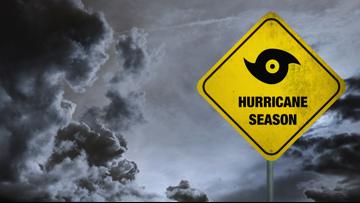Facebook is the largest social media platform in the world, with over 3 billion monthly active users.
VERIFY reader Jeremie told our team he received a letter that appeared to be from Facebook that was signed by Facebook CEO Mark Zuckerberg and the FBI claiming he was the winner of the “Facebook lottery promotion.” He also received an ATM card with the letter.
He wants to know if this promotion is real or a scam.
THE QUESTION
Does Facebook have a lottery promotion?
THE SOURCES
THE ANSWER
No, Facebook does not have a lottery promotion.
WHAT WE FOUND
Facebook does not have a lottery promotion. The social media company lists lottery scams as one of the most common scams on its platform.
Lottery scams are often carried out by accounts or pages impersonating someone a person may know in real life or pretending to be an organization, such as a government agency or Facebook itself, according to our sources.
Facebook says the lottery scam messages typically claim a person is among the winners of a lottery and that they can receive money for a small advance fee. The scammer may also ask the alleged lottery winner to provide personal information, including their physical address or bank details.
The Better Business Bureau (BBB) frequently receives reports of social media-related lottery scams on its Scam Tracker and says Facebook is cited as the most common social media network involved.
“Social media companies generally do not operate a lottery or sweepstakes, and any message saying they do is almost certainly a fraud,” the BBB says.
U.S. Customs and Border Protection (CBP) thwarted a version of this scam in 2021. The agency said officers at the Dallas/Fort Worth International Airport intercepted a pair of large envelopes containing documents announcing winners of $500,000 and $900,000 Facebook lotteries that had been mailed from scammers in Nigeria.
The envelopes contained phony insurance documents, an alleged FBI vetting letter and a pair of Bank of America ATM cards. The documents were also allegedly signed by Facebook CEO Mark Zuckerberg and FBI Director Christopher Wray.
CBP officers quickly determined the documents were phony and “a clear attempt to bait people into wiring funds overseas in hopes of claiming winnings from a fake lottery.” That’s because the documents contained several typos and improper grammar.
Scammers often share photos of these types of fake documents to convince skeptical victims the “lottery” is real.
The Federal Trade Commission (FTC) says there are three key ways to identify a lottery scam.
First, if someone tells you to pay a fee for taxes, shipping and handling charges, or processing fees to get your prize, you’re dealing with a scammer.
“If they ask you to pay by wiring money, sending cash, or paying with gift cards or cryptocurrency to get your prize, don’t do it. Scammers use these payments because it’s hard to track who the money went to, and it’s almost impossible to get your money back,” the FTC says.
The second way to tell you’re being targeted in a lottery scam is if the scammer says paying increases your odds of winning.
“Real sweepstakes are free and winning is by chance. It’s illegal for someone to ask you to pay to increase your odds of winning. Only a scammer will do that,” the FTC says.
Third, if you’re asked to give your financial information, you’re being scammed, according to the FTC.
“There’s absolutely no reason to ever give your bank account or credit card number to claim any prize or sweepstakes. If they ask for this information, don’t give it. It’s a scam,” the FTC warns.
Facebook also provides several tips to help people identify and avoid scams on its platform:
- Watch out for scammers pretending to be Facebook representatives. Official company email addresses end in @fb.com and @instagram.com. Facebook and Instagram will never ask for your passwords through email or messages.
- Check your login history for suspicious logins. To do so, go to your Facebook profile settings and click Security and Login.
- Report all suspicious emails. If you receive a message that you think might be a scam, do not open it and report it immediately to Facebook at phish@fb.com.
- Don’t click or open suspicious links. Spam is sometimes spread through clicking on bad links or installing malicious software. Scammers can also gain access to people's Facebook accounts and use it to send out spam.
- Don’t give money to anyone who wants to sell you a verification badge.
- Don’t trust someone who wants to become an admin for your page. Especially if they offer you payment to you for this role. Instead, report the person or profile to Facebook.
If you’ve been targeted by a lottery scam, you can report it to the FTC at ReportFraud.ftc.gov. You also can contact your state attorney general and your local consumer protection office.
If you gave your personal information to a scammer, visit IdentityTheft.gov for steps you can take to protect your identity. The FTC also shares tips on what to do if you already paid a scammer on its website.












